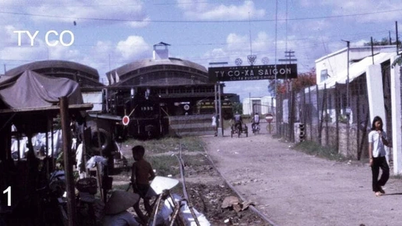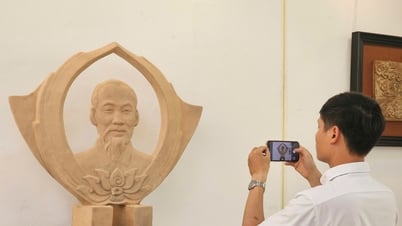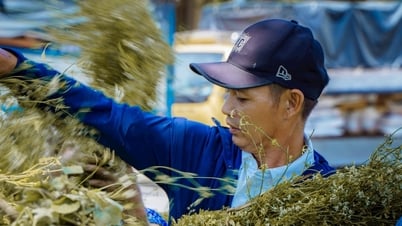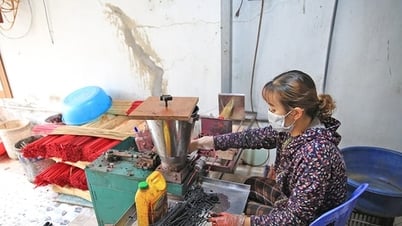I remember that year, my family changed from eating wild duck to eating Muscovy duck. My mother was a widow and orphan, so she had to take on the responsibility of bleeding, plucking feathers, and butchering the duck… Compared to wild duck, the Muscovy duck was much bigger and stronger. After my mother had bled it, the wild duck still got up and ran around the house, covered in blood, which was really scary. Not only that, when I boiled it in boiling water to pluck its feathers, the Muscovy duck kicked it around. My mother was burned, not only on her hands and feet but also on her face. Luckily, it wasn’t too serious, but at noon on the 5th of that day, the Muscovy duck meat in my house was tough and boring.
Tet Mung Nam is also called Tet Doan Ngo, or Tet Doan Duong, celebrated on the 5th day of the 5th lunar month every year. "Doan" means beginning, "Ngo" is the period from 11am to 1pm, eating Tet Doan Ngo means eating at noon. When I was a child, I was always confused when my grandmother told me that we celebrate Tet on the 5th day of the Chinese New Year associated with the death of poet Khuat Nguyen. However, I was deeply moved when someone called this "Tet to kill insects" with the simple meaning, this is the day to launch the catching of insects, to destroy pests that are harmful to crops.
The 5th day of the 5th lunar month is the time when the Central region and Hue are experiencing intense sunshine. The planting of the crop is basically finished. That is when the rice plants in the fields take root, and more than ever, they need the care of farmers. “Planting is a waste of time, weeding is a profit”. The rice plants grow green and insects also multiply and destroy them. Therefore, celebrating Tet on the 5th day is to enter a new phase, focusing on taking care of the rice and preventing pests.
There are many things to remember about Tet Nam Ngu. Not counting eating and drinking, there is also the story of picking Nam Ngu leaves with the belief that any kind of leaf can become a precious medicine. Nam Ngu leaves grow around the house and are not as hard to find as the diêu bông leaves that a certain musician once composed. Like finding and catching lizards. Nam Ngu is very strange, lizards and insects in the house run away somewhere, you can't find them, while on normal days there are countless lizards running around biting each other's tails on the walls of the house. So, if you catch a lizard at noon on Nam Ngu, it is better than... winning the lottery. Putting it in a basin, pouring water and carrying it right out to the middle of the yard to bathe is even more effective than Nam Ngu leaves. That's what I heard people say.
Back to the main topic, the Fifth Day lunch. A true Fifth Day meal must have meat, sweet soup (millet sweet soup served with rice paper), ash cake, sticky rice, fruit and drinks. In the past, no matter how poor a family was in the village, they could not do without the duck dish that used to make my mother suffer. I remember back then, from the ducks raised at home, my mother could prepare at least 3 dishes: boiled duck (with ginger fish sauce), duck porridge and braised duck. Later, when the family had a son-in-law, there was also duck blood pudding. Furthermore, a full and luxurious Fifth Day feast also had roast duck, duck salad, duck stewed with Chinese herbs...
Duck is called “Gia Ap” in ancient medical books, some places call it Gia Phu, and also Vu. On the fifth day of Tet, the weather is hot and the temperature is high. According to Oriental medicine, duck meat is cool and sweet, has the effect of moving blood and increasing energy, nourishing the body for people who work hard and work hard. Therefore, choosing duck as food is the best. It is a dish that can balance heat, nourish the body, and more deeply, it is a traditional spiritual belief that eating duck can dispel bad luck.
Although the “self-sufficient” domestic ducks are fat, they are still not as delicious as the free-range ducks. That is the real Fifth Day duck. My village in Huong Thuy is surrounded by village fields. About a week before the Fifth Day, the village market, Hom market, in my hometown, is bustling with the sound of ducks quacking, that is when the duck owners “sell off their goods”. After several months of grazing in the fields, at this time, the ducks become fatter and firmer and no longer have a foul smell. In particular, the meat is fragrant and full of nutrients, because it is full of fallen rice, snails, crabs and even fish and shrimp during the harvest season.
Tet Nam Ngu is coming very soon. Along with many families in the city excitedly returning to their hometowns, happily enjoying a Doan Ngo feast with their mothers, I suddenly felt excited when hearing someone ask each other, “Have you bought the duck Nam Ngu yet?”
Source


![[Photo] General Secretary To Lam receives Chief of the Central Office of the Lao People's Revolutionary Party](https://vphoto.vietnam.vn/thumb/1200x675/vietnam/resource/IMAGE/2025/5/30/140435f4b39d4599a3d17975dfb444c5)

![[Photo] A delegation of 100 journalists from the Vietnam Journalists Association visits the soldiers and people of Truong Sa island district.](https://vphoto.vietnam.vn/thumb/1200x675/vietnam/resource/IMAGE/2025/5/30/0984a986227d4e988177f560d2e1563e)
![[Photo] Journalists moved to tears at the Memorial Service for the soldiers who died in Gac Ma](https://vphoto.vietnam.vn/thumb/1200x675/vietnam/resource/IMAGE/2025/5/30/9454613a55c54c16bf8c0efa51883456)

![[Photo] National Conference "100 years of Vietnamese Revolutionary Press accompanying the glorious cause of the Party and the nation"](https://vphoto.vietnam.vn/thumb/1200x675/vietnam/resource/IMAGE/2025/5/30/1cf6cd5c8a934ebfa347028dcb08358c)




















































































Comment (0)